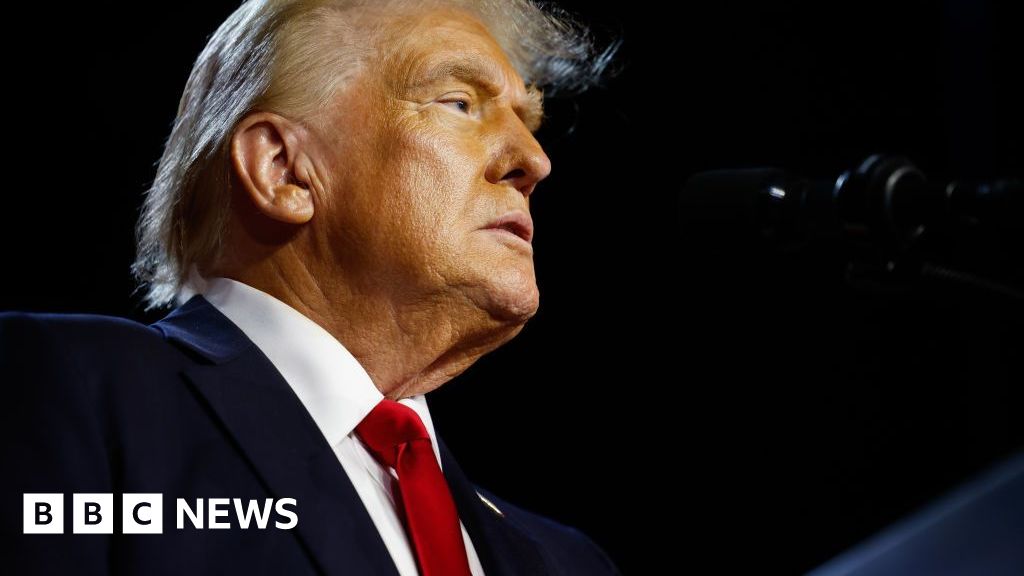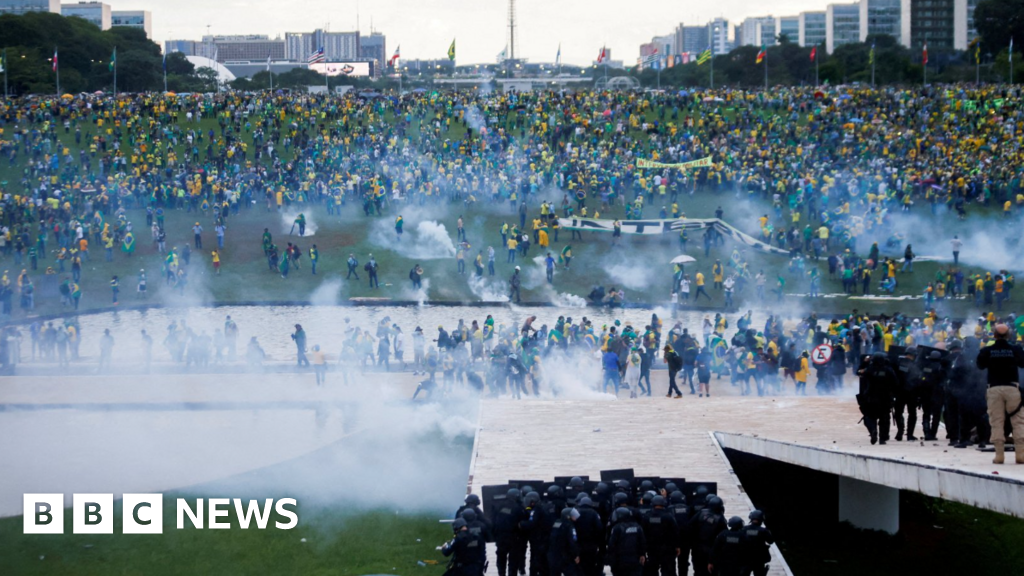ARTICLE AD BOX
Image source, Getty Images
Image caption,The pipeline took five years to complete
Germany's energy regulator has suspended the approval process for the controversial Nord Stream 2 natural gas pipeline from Russia to Germany.
It said the pipeline's operating company needed to be compliant with German law before it would certify the €10bn (£8.4bn) project.
Russia's state-owned Gazprom said the pipeline was ready in September but it has been beset by delays.
Critics fear the pipeline will increase Europe's energy dependence on Russia.
However, gas prices across Europe have surged in recent months.
Running under the Baltic Sea, Nord Stream 2 will double Moscow's gas exports to Germany, but it will also circumvent Ukraine, which relies on existing pipelines for income and would be hard-hit by the loss of transit fees.
German businesses have invested heavily in the 1,225km (760-mile) pipeline and former Chancellor Gerhard Schröder has played a big role in its development.
Political weapon
The German regulator said "it would only be possible to certify an operator of the Nord Stream 2 pipeline if that operator was organised in a legal form under German law".
The decision is likely to set the project back several months and even when it receives German approval it will require a green light from the European Commission.
The regulator said its approval procedure would remain suspended until "the main assets and human resources" had been transferred from the Swiss-based Nord Stream 2 parent company to its German subsidiary, which owns and operates the German part of the pipeline.
Ukraine has opposed Nord Stream 2, described by President Volodymyr Zelensky as a "dangerous geopolitical weapon".
This week, UK Prime Minister Boris Johnson said a choice was coming shortly "between mainlining ever more Russian hydrocarbons in giant new pipelines and sticking up for Ukraine and championing the cause of peace and stability".
German Chancellor Angela Merkel said recently that further sanctions might be imposed on Russia if it used the pipeline against Ukraine.
The German regulator's decision to suspend certification has been welcomed by Ukrainian energy firm Naftogaz. And Polish gas company PGNiG responded with a call for energy solidarity in the EU to ensure security of supplies.
The Nord Stream 2 consortium declined to comment on possible delays to gas exports.
Under the EU's gas directive, gas producers have to be separate from the company that owns the pipeline.
As well as Germany's Uniper and BASF's Wintershall unit, other European companies have stakes too, including Anglo-Dutch Shell, OMV of Austria and Engie of France.
Germany's government estimates that "natural gas will continue to make a significant contribution to energy supply in Germany over the coming decades", saying it is "more climate-friendly compared to other fossil fuels as it produces less CO2".
But environmentalist groups in the country such as Deutsche Umwelthilfe oppose Nord Stream 2, arguing that it is incompatible with Germany's emissions goals in the battle against man-made climate change.

 3 years ago
36
3 years ago
36








 English (US)
English (US)